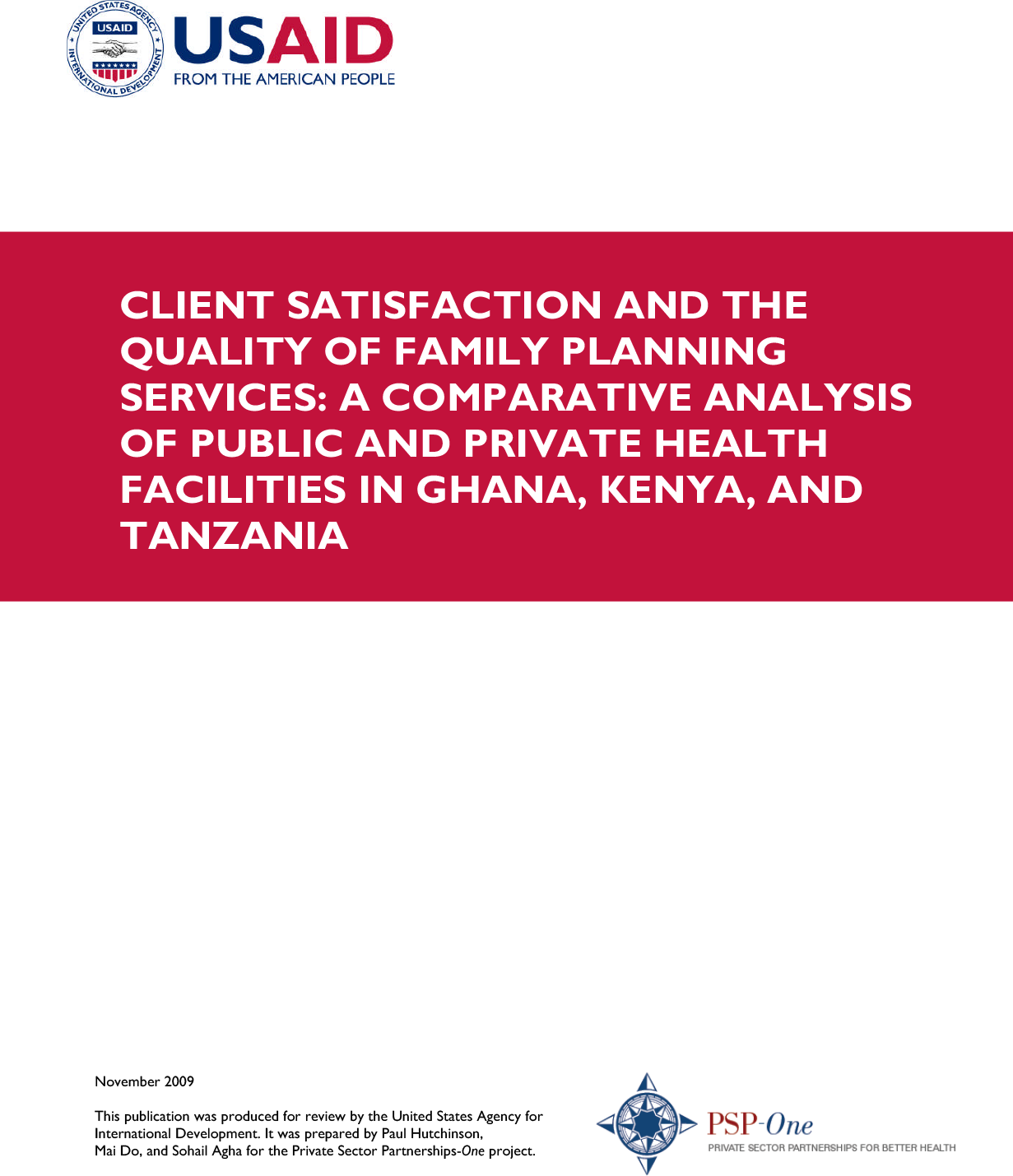
Resource Library
Client Satisfaction and the Quality of Family Planning Services: A Comparative Analysis of Public and Private Health Facilities in Ghana, Kenya, and Tanzania
OBJECTIVES To measure the extent of quality differentials in family planning (FP) services at public and private hospitals and clinics in three countries (Ghana, Kenya, and Tanzania) and to determine how these differentials affect FP clients' satisfaction with those services. METHODS The analyses make use of data from the 2002 Ghana Service Provision Assessment, 2004 Kenya Service Provision Assessment, and 2006 Tanzania Service Provision Assessment. Multivariate regression assesses the association and relative importance of different measures of structural and process quality on client satisfaction. RESULTS Private health facilities appear to be of higher process but not necessarily technical quality in the three countries as measured by several quality attributes, though these differentials are considerably larger at lower-level facilities (clinics, health centers, dispensaries) than at hospitals. FP client satisfaction, however, appears considerably higher at private facilities – both hospitals and clinics – most likely attributable to better factors such as shorter waiting times and fewer stockouts of methods and supplies. CONCLUSIONS Private providers appear to be fulfilling an important gap in the provision of FP services in the study countries, providing FP services that are at least as good in technical quality on average as their public sector counterparts while also achieving higher levels of client satisfaction. Continued support and favorable – though not permissive regulatory environments can ensure that the private sector maintains this important role in women's health.
Resource Type : Report
Country : Ghana, Kenya, Tanzania
Year : 2009-12-04T10:15:00
Language : English
Project : SHOPS


